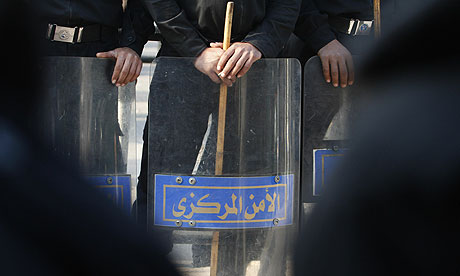But can the uneasy Fatah-Hamas truce last?
Another flare-up in the Arab world and another Egyptian diplomatic initiative to bring about an end to hostilities.
The past two years have proven to be most challenging for Egypt’s diplomatic corps and mediators, flying nearly non-stop from one Arab and African capital to the next.
And I thought I had a difficult job.
Today President Hosni Mubarak is hosting Palestinian President Mahmoud Abbas whose Fatah faction has been engaged in pitch street battles with main power-broker Hamas throughout Palestine.
At least 30 Palestinians have been killed . by Palestinians.
And as if that weren’t enough to convince one not to invest in real estate in Palestine, a suicide bomber killed three civilians in Eilat prompting an Israeli air strike in the much-devastated and impoverished Gaza strip.
Stupid? Indeed. In some local media, headlines blurted out “Finally, the Palestinians take arms against Israel. I guess a stupid act can easily be surpassed by a stupid comment.
The killing of three civilians is nothing to be proud of nor does it offer the Palestinians any respite. Rather, it further worsens conditions for the already starving Gazans, among others.
Palestine, like Iraq and Lebanon, is dying . but this time thanks in part to the incompetence and egotistic behavior of its leaders – those who assumed office with the promise of fighting Israeli occupation, creating a Palestinian state, making a better future for their citizenry.
In this melee, Egypt has for some time maintained a strong security and intelligence presence in Gaza and along the Rafah border which partly reports on how the prospect of negotiations to bridge Fatah-Hamas differences.
But the presence is also to monitor whether arms and drugs are being smuggled across the border into Egypt.
Yesterday, a security official told the media that Egypt would tighten security in that area. Some media reports had initially claimed that the Eilat attacker had crossed over from Egypt, but authorities here immediately ruled that out.
In previous months, Egyptian forces have been making raids in Sinai and along the Rafah border in pursuit of bands that use a number of tunnel systems to smuggle weapons, monies and drugs to and from Palestine.
Former Ambassador to Israel Mohammed Bassiouny, previously told The Daily Star Egypt that the government here is concerned about arms making their way back into Sinai, which has seen bombing attacks at tourist hotspots in the past two years killing more than 100 people.
The tunnels can be used both ways, he said, We don’t want weapons, drugs or people being smuggled into Egypt. [Therefore] we are opposed to the tunnels and we destroy them.
Therefore, all reports of the Eilat attacker coming from Egypt should be treated with suspect unless there is concrete evidence to the contrary.
Mohammed Kadry Saeed, military expert at Al-Ahram Center for Political and Strategic Studies, also shared his thoughts with The Daily Star Egypt during several interviews and said that Egyptian police had been moved near the Rafah area as part of efforts by the government to secure the region and prevent further acts of violence in the Sinai Peninsula.
“The current Egyptian redeployment is an effort to secure the tunnels . and prove to Israel that the smuggling going on in the border tunnels is not occurring with its tacit approval, Saeed told The Daily Star Egypt.
Egyptians should not make the mistake of dismissing events in Palestine or in Israel as issues which have no bearing on internal affairs. The Arab countries of this region are intractably connected along social, economic, and political lines. What happens in any of those countries, will affect us here.
I am not Egyptian but this country has been my home on and off for 20 years and right now, for many Arabs, it is a focal haven in the region.
Four years ago, President Mubarak warned of the impact of the invasion of Iraq. Today we are living the ripple effect crises that have surfaced because of the ineptitude and brazen folly of those who did not listen.
It is, therefore, not a surprise that Egyptian diplomacy is highly active, scratch that – aggressive – in pursuit of conflict resolution.
Egypt in Lebanon, Egypt in Darfur, Egypt in Somalia, Egypt in Iraq: The impact of the largest Arab country in the region cannot be stated enough.
It is, therefore, also not a surprise that Iran is seeking to curb that positive impact in many of the said countries.

